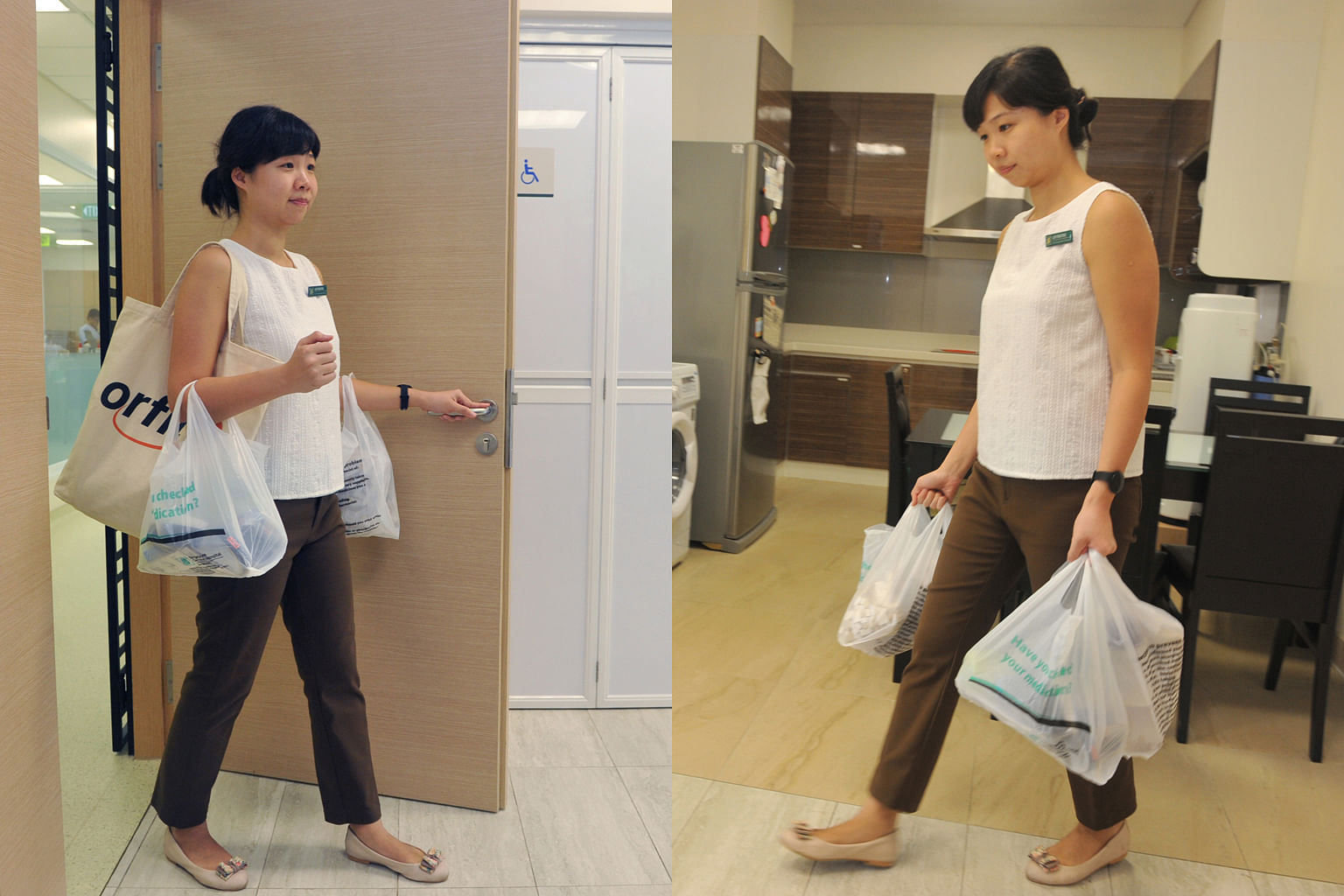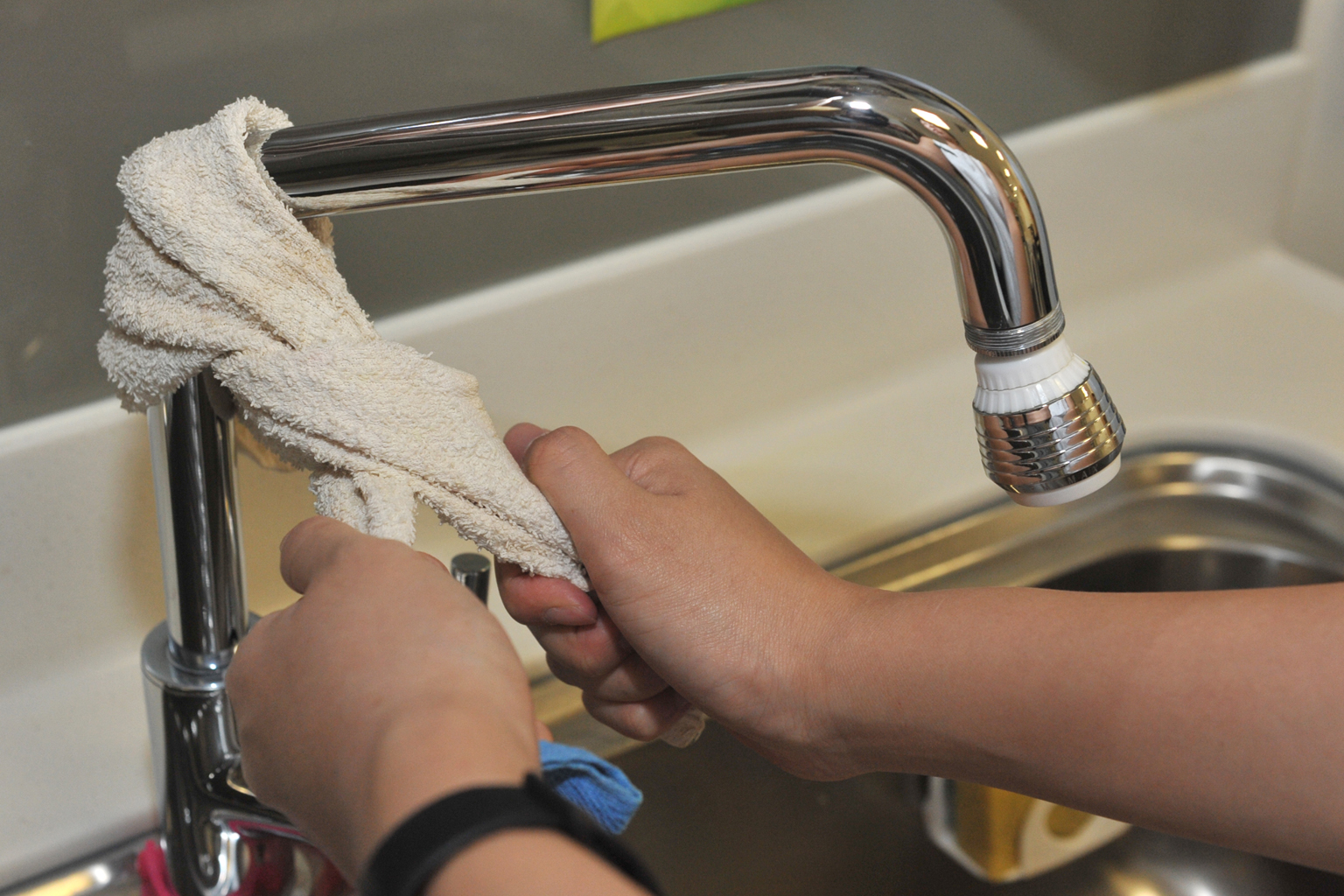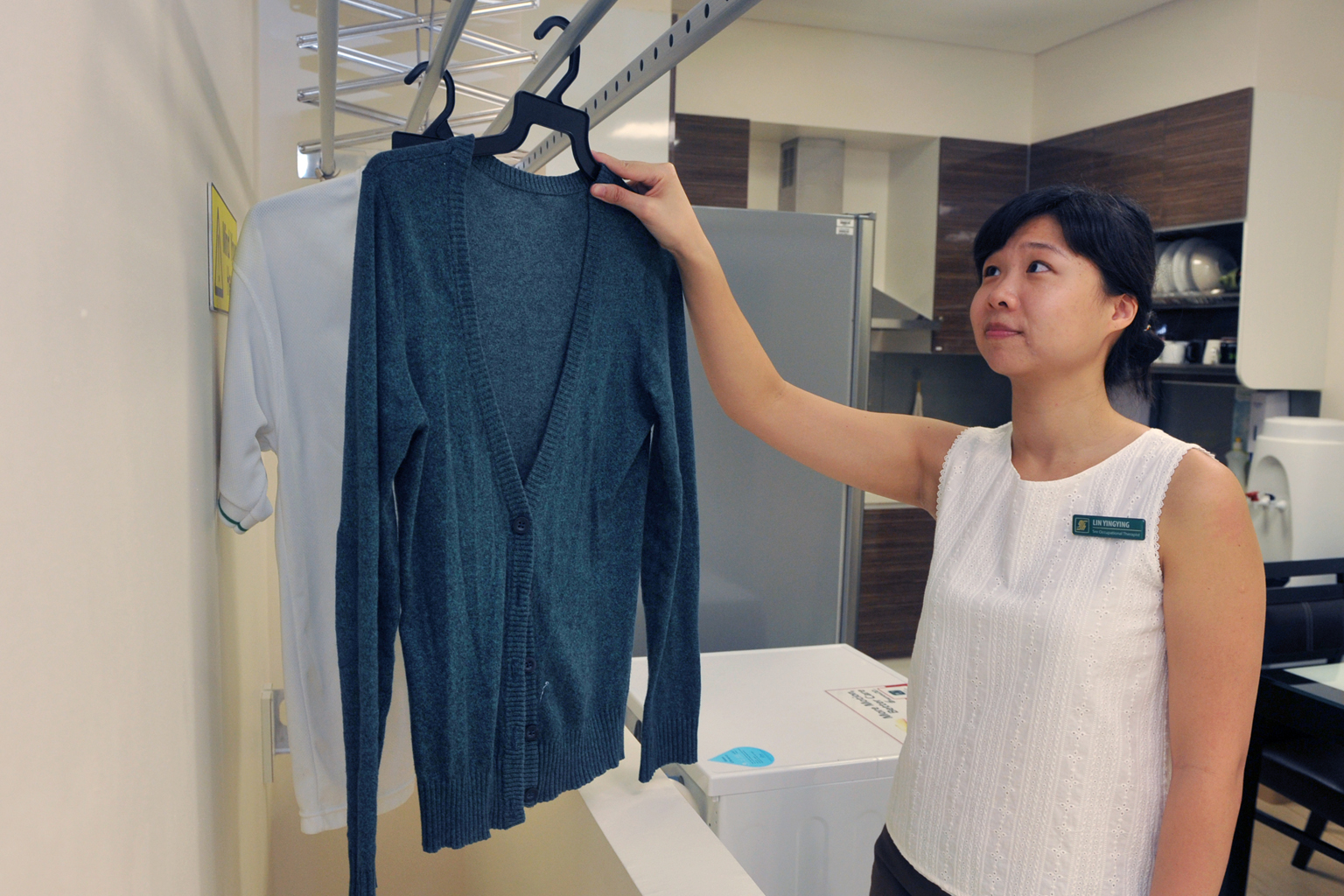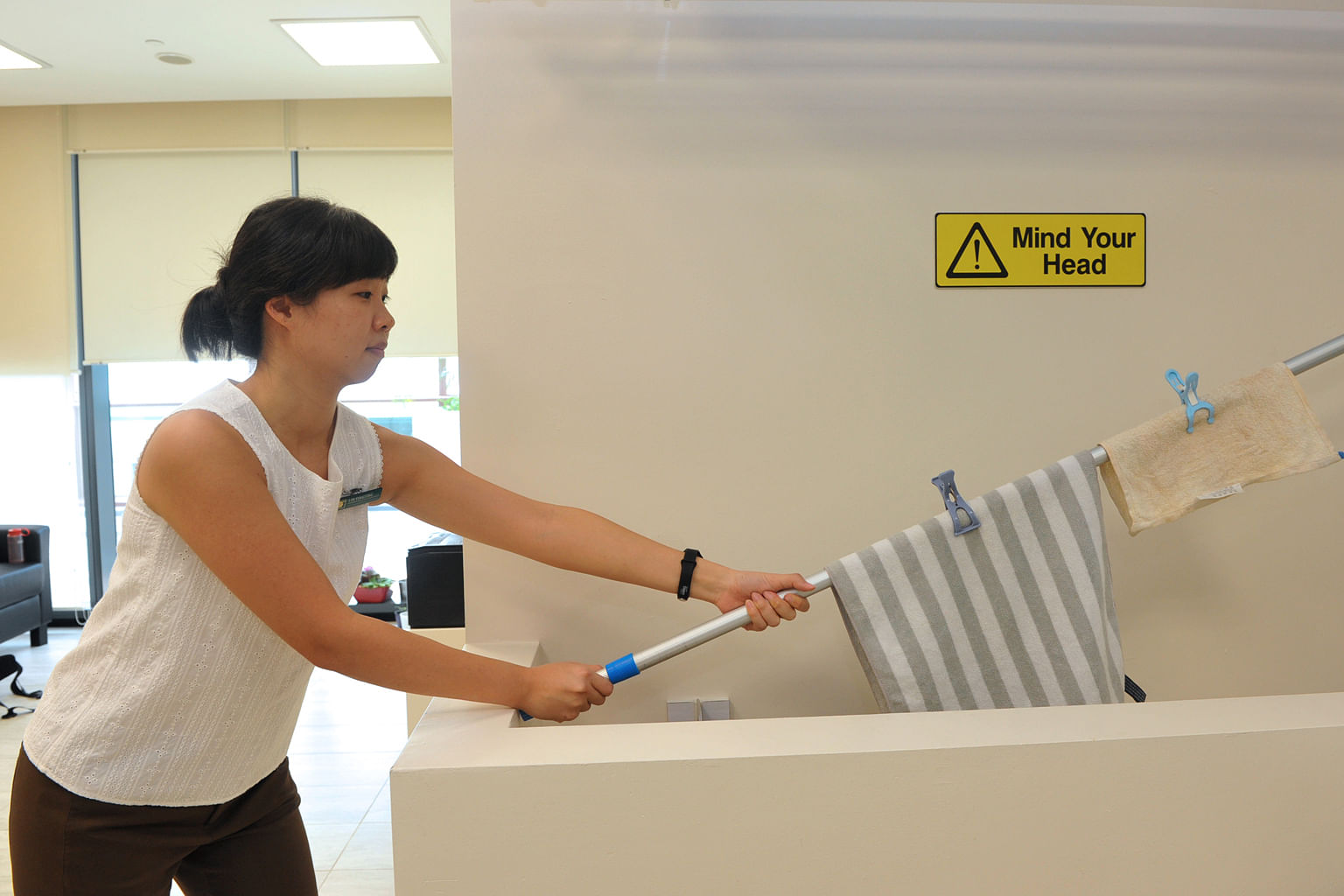Repetitive stress injuries can be avoided by making simple adjustments to your daily routine.
Housewives, for instance, can change the way they carry groceries or wring clothes dry to reduce the musculoskeletal stress on their bodies.
You can also reduce the strain by taking regular breaks, doing some stretching and paying attention to your posture.
"Try to change your posture every hour or so. This can involve just a quick stroll to the office pantry or the restroom," said Associate Professor Denny Lie, a senior consultant at the Singapore General Hospital's (SGH's) department of orthopaedics.
Ms Lin Ying Ying (pictured), a senior occupational therapist at SGH, demonstrates the better way to do common household chores.
CARRYING BAGS OF GROCERIES

WRINGING A TOWEL


POURING WATER FROM A KETTLE


HANGING CLOTHES



